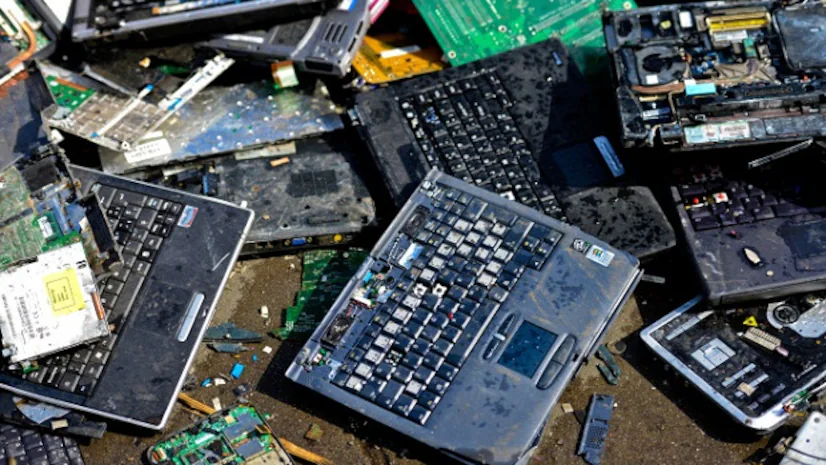India generated more than 1.6 million tonne of e-waste in FY22, up from 1.3 million tonne in FY21
E-waste, also known as electronic waste, has emerged as a pressing environmental concern in both India and the global context. Over the financial years 2020-21 and 2021-22, India produced an estimated 1,346,496.31 tonnes and 1,601,155.36 tonnes of e-waste, respectively, stemming from twenty-one types of Electrical and Electronic Equipment (EEE) that fall under the purview of the E-Waste (Management) Rules, 2016.
During the fiscal year 2021-22, India successfully collected and processed approximately 527,131.57 tonnes of e-waste. A significant portion of this waste, nearly half, originated from Haryana, amounting to around 245,016 tonnes. Conversely, the lowest e-waste collection occurred in Andaman & Nicobar Islands, with less than one tonne. Uttarakhand followed Haryana as the second-highest contributor with 51,541 tonnes, trailed by Telangana at 42,298 tonnes.
Fifteen states struggled to collect and process less than 1,000 tonnes, and alarmingly, eight states even collected less than 100 tonnes of e-waste.
Notably, e-waste collection and processing efforts were observed in 28 states and union territories across India during this period.
It is worth mentioning that India’s e-waste generation remains notably lower than that of other major economies globally.
To estimate the amount of e-waste generated, the Central Pollution Control Board (CPCB) relies on sales data from producers and the average lifespan of electrical and electronic equipment (EEE), a process mandated by the E-waste Management Rules, 2016.
To tackle the escalating issue of e-waste and enhance its handling, the Ministry has recently updated the regulations, introducing the E-Waste (Management) Rules, 2022, which took effect on April 1, 2023.
Under these new rules, manufacturers, producers, refurbishers, and recyclers must now register on a dedicated portal developed by CPCB to ensure the responsible management of e-waste.
Furthermore, the rules include provisions for environmental compensation, as well as verification and audit procedures to enhance compliance and accountability.



